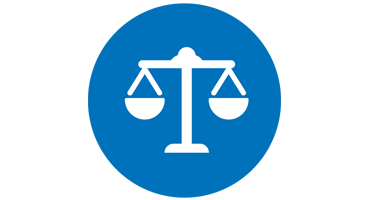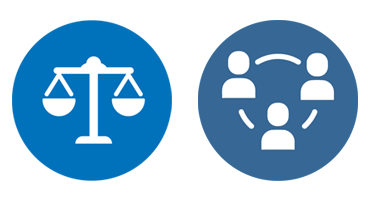Category: Hennepin County, MN
Training for all disciplines on domestic violence and child custody (Hennepin)
A key challenge identified by the Hennepin County team was inconsistency among all family court practitioners in identifying domestic violence, assessing it adequately once identified, and properly accounting for it in parenting plans. Another challenge was survivors’ lack of information needed to access available relief. As part of the efforts to address these challenges, the team developed a training program for all family court practitioners: judicial officers, guardians ad litem, mediators and early neutral evaluators, custody evaluators, self-help center staff, advocates, and attorneys. Several trainings in multiple formats were conducted to reach as many people as possible. A central piece to the practitioners’ training was the SAFeR Framework (formerly the Custody Framework) developed by the Battered Women’s Justice Project (BWJP), which provides a useful analytical and decision-making tool in custody cases involving domestic violence. Training on the Framework was provided in multiple formats to multiple audiences, including a training for attorneys and advocates, a training for new judges, and a multidisciplinary webinar. BWJP is constantly updating the training materials, so for more information or to request assistance with a training in your community, please see their website or use the Contact link above.
Read MoreSurveys and roundtables (Hennepin)
Challenges identified by the project team included a lack of accurate identification of domestic violence by family court practitioners and survivors’ lack of understanding and information regarding family court procedures, available relief, and governing law. Another challenge concerned the inconsistency in court orders around the intersection of domestic violence and custody, both in the inclusion of child-related relief in protection orders and in properly accounting for domestic violence in divorce and custody cases. To better assess these gaps and their impact, the site conducted several roundtables with different practitioner groups as well as survivors, and the bench and family law bar were surveyed to gather more data about the scope of these issues and to inform the development of possible solutions.
Read MoreSelf-represented litigant info on protection orders and child custody (Hennepin)
Most litigants in family court, in Hennepin County as in the rest of the country, do not have lawyers and instead represent themselves. The team identified litigants’ lack of information and understanding about family court procedures as one of the challenges for the project. To help address this gap, Hennepin County created a series of materials designed to help litigants understand court processes and present their cases in the best way possible.
Read MorePilot court for child-related relief in protection orders (Hennepin)
One challenge for Hennepin County was an inconsistency in the inclusion of child-related relief in orders for protection. After gathering information about the issue, the team developed a domestic violence pilot court, specifically for cases in which such relief is requested. The materials here include sample pilot court calendars, the pilot protocol, an overview of the activity used for training judicial officers and staff, and a sample order. The pilot court proved to be successful and has since expanded its docket.
Read MoreCourt access for Native Americans (Hennepin)
Native Americans experience domestic violence at higher rates than any other group in the United States, yet the Hennepin County team found that very few accessed the relief available from orders for protection in family court or tribal court. To meet this need, the team created two positions, a Native Liaison and a Community Outreach Specialist, to build a relationship between the court and the Native population and to provide information about what family court can do to help. Below are some of the materials that were developed as well as job descriptions of the two positions.
Read More



